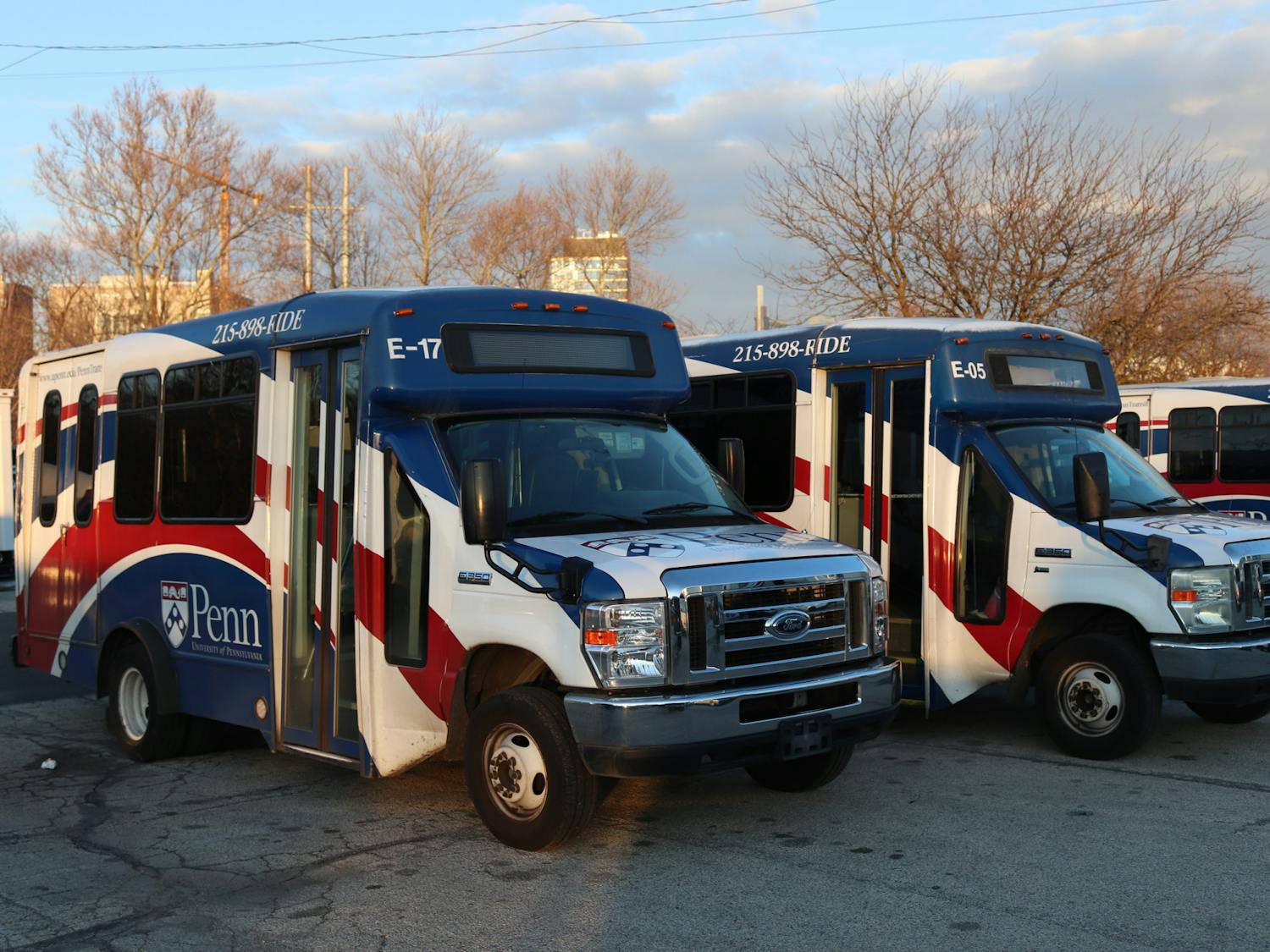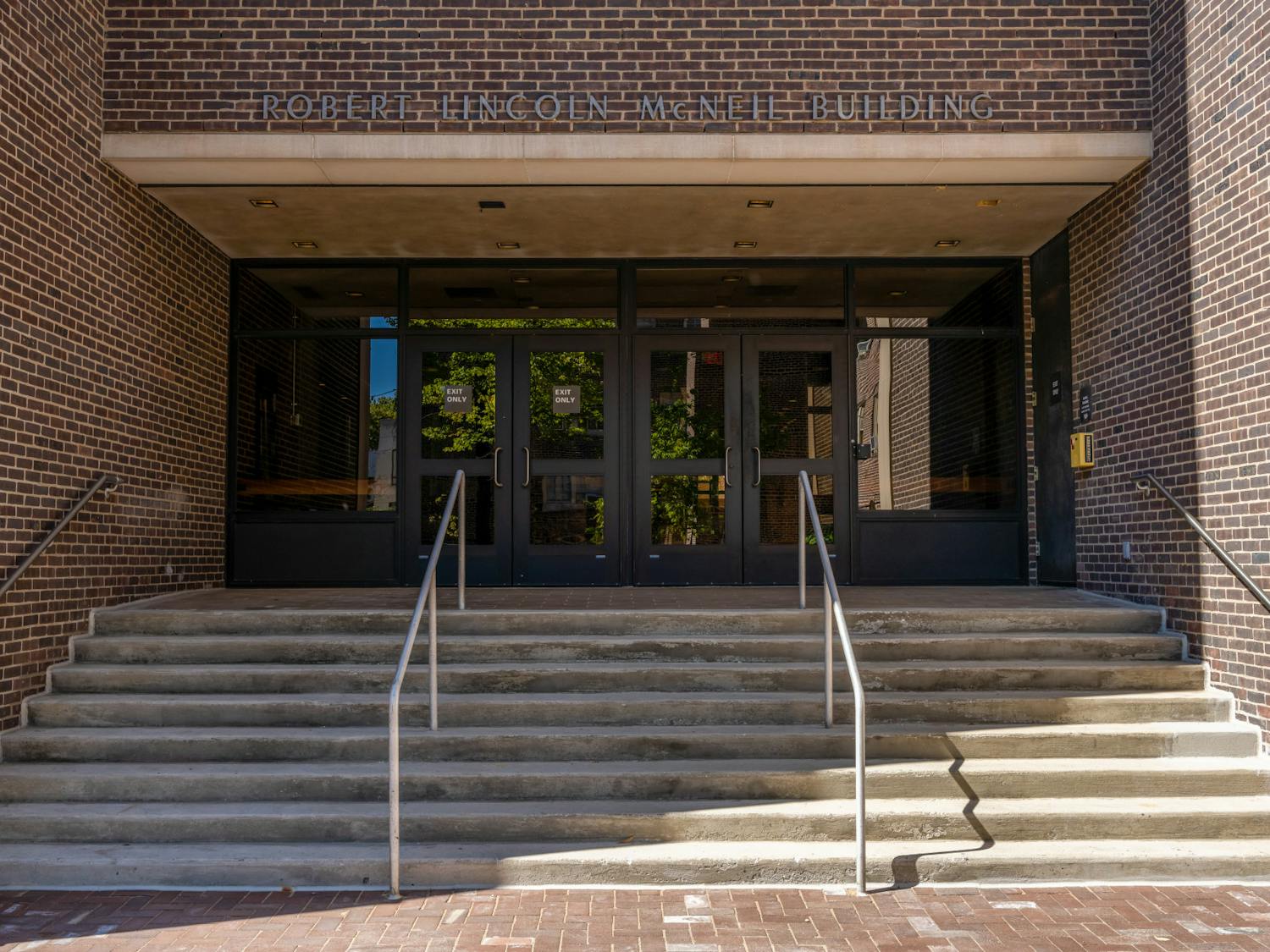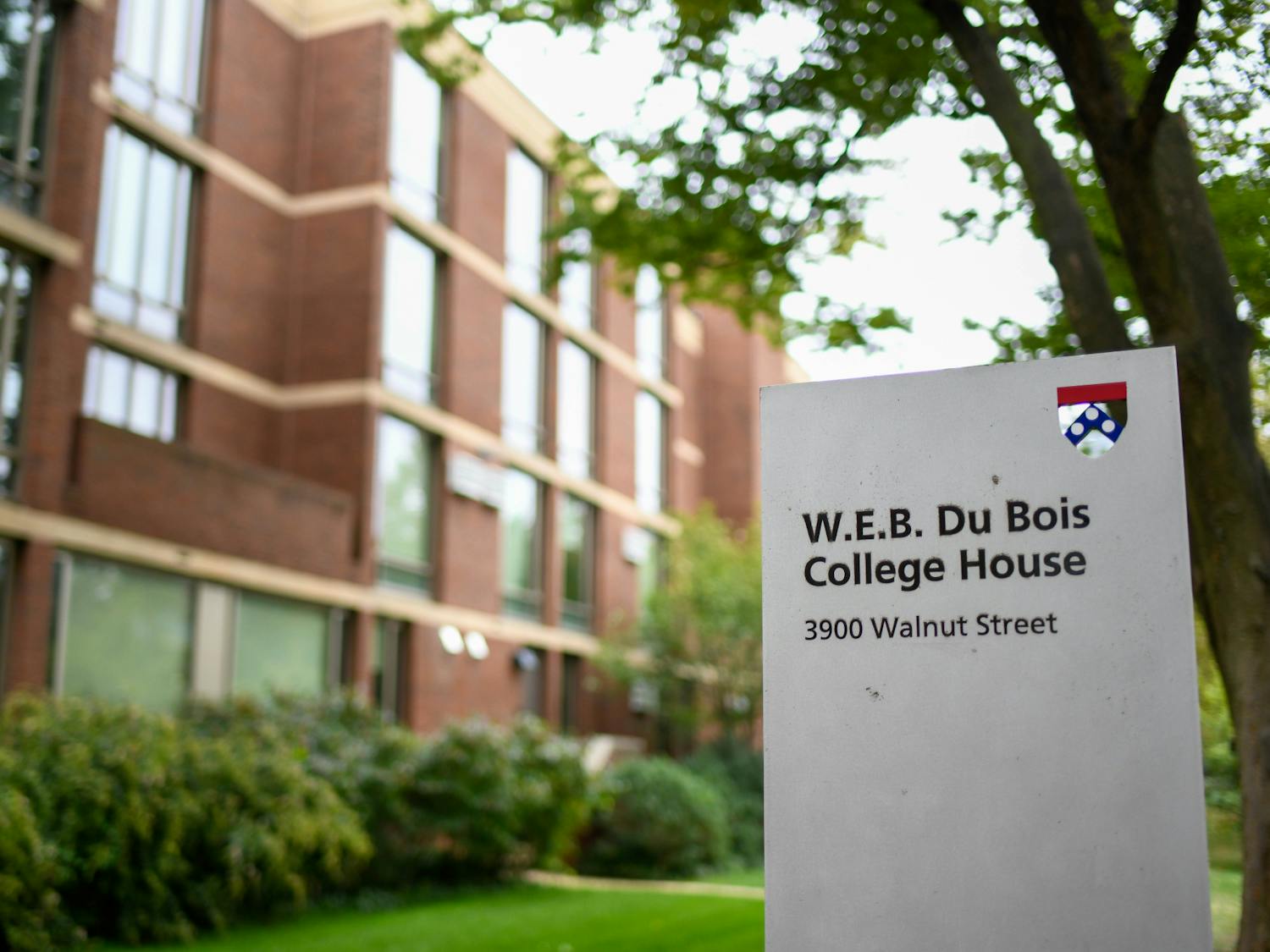Earlier this month, Penn's Division of Public Safety received Security Magazine’s Security 500 award for the No. 1 Public Safety program in higher education for the 13th year in a row.
The rankings are based on data supplied by each university as well as other public records. Factors evaluated include security budget, spending, number of employees, and persons protected. DPS consists of 180 personnel, 121 of which are Penn Police officers.
These are the technologies in place to prevent thefts and other crimes on campus, explained by Vice President for Public Safety Maureen Rush.
Bait bikes
The bait bicycle program, which started in November 2014, consists of a series of bikes that are secured to bike racks around campus with cable locks.
As soon as a bait bicycle is removed from its location, an alert pops up on a screen at the PennComm operations center. The bike's location then appears on a map.
PennComm operators immediately alert the police that the bike has been stolen and to look at the CCTV cameras. The operator uses the cameras to find and follow the suspect until the police make an arrest.
Several weeks ago, a repeat bike thief attempted to steal a bait bike. However, when he got on the bike he realized that it had the same feel as a bait bike he had previously stolen – and been arrested for. He then tried to switch to another bike, but was caught and arrested for two bike thefts.
RELATED:
In this week's crime log: a smoking code violation and six bike thefts
Crimes near Penn's campus rise to more than 230 cases this summer
To date, 51 bait bikes have been stolen and all have been recovered. A total of 56 suspects have been arrested, meaning some of the thefts involved more than one person.
Bait packages
The bait packages program was rolled out last year after the success of the bait bike program. Packages are placed on the porches of areas with a high incidence of package theft. These bait packages include something of value inside as well as a GPS tracker.
Package thefts typically occur when a person follows a delivery truck as the vehicle goes from door to door.
In 2017, there were 26 package thefts. In 2018, there were 63 package thefts. As of Nov. 19, there have been 49 package thefts this year. There have been a few arrests from the bait package program but exact statistics were not available.
Security cameras
Penn Police also uses analytical audio and video technology to make patrolling more efficient, particularly at Penn Park and several bike racks around campus.
At Penn Park, the cameras and audio system began in 2013. Penn Park closes at 11 p.m., but there are no gates. Sensors at each of the three park entrances will detect if a person attempts to enter the park after 11 p.m. An audio message will be played to remind the individual that the park is closed. At the same time, the sensors will activate the security cameras at the gate and the camera feed will pop up on a security monitor at PennComm Operations Center.
However, employees of the Hospital of the University of Pennsylvania will often cut through the park on their way home after late-night shifts. Operators monitor the personnel as they make their way through the park.
The same sensory technology is used at several bike racks around campus. Late at night, the sensors draw a box around the bike rack. If someone enters the box and stays for over 12 seconds, an audio message plays from the security camera located overhead. Individuals tend to look up when they hear the message, and the camera gets a clear image of the person's face.
In 2018, Penn Police invested in BriefCam, a video analytics software that enables detectives to filter camera footage for suspects with specific features, such as articles of clothing, height, and race. The new technology greatly reduces the time detectives take to comb through the footage.
Penn Police uses the BriefCam software on the cameras that are located in areas with the highest probability of catching suspects.
In 2018, four arrests occurred due to the BriefCam technology — two burglaries, one theft, and one bicycle theft. One of these burglaries was committed by a serial burglar of office spaces. He was arrested for 59 burglary and trespassing-related offenses shortly after his spree began.
In 2019 to date, arrests have been made for two burglaries and one theft based on footage from BriefCam.
All cameras are digitally taped and the footage is stored for 16 to 20 days. There are around 145 pan tilt zoom cameras — the main type of security camera DPS uses — around campus and the surrounding streets.









